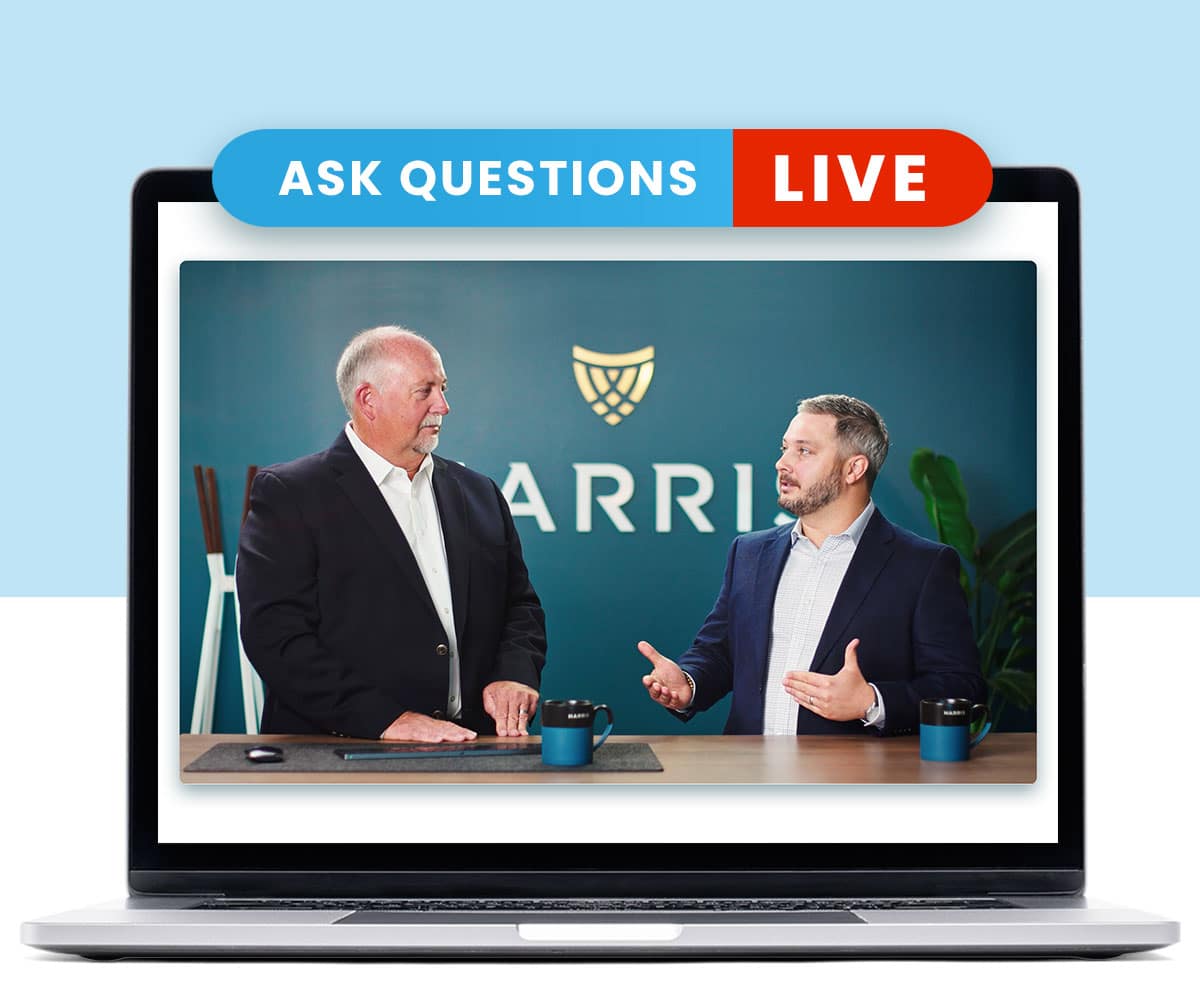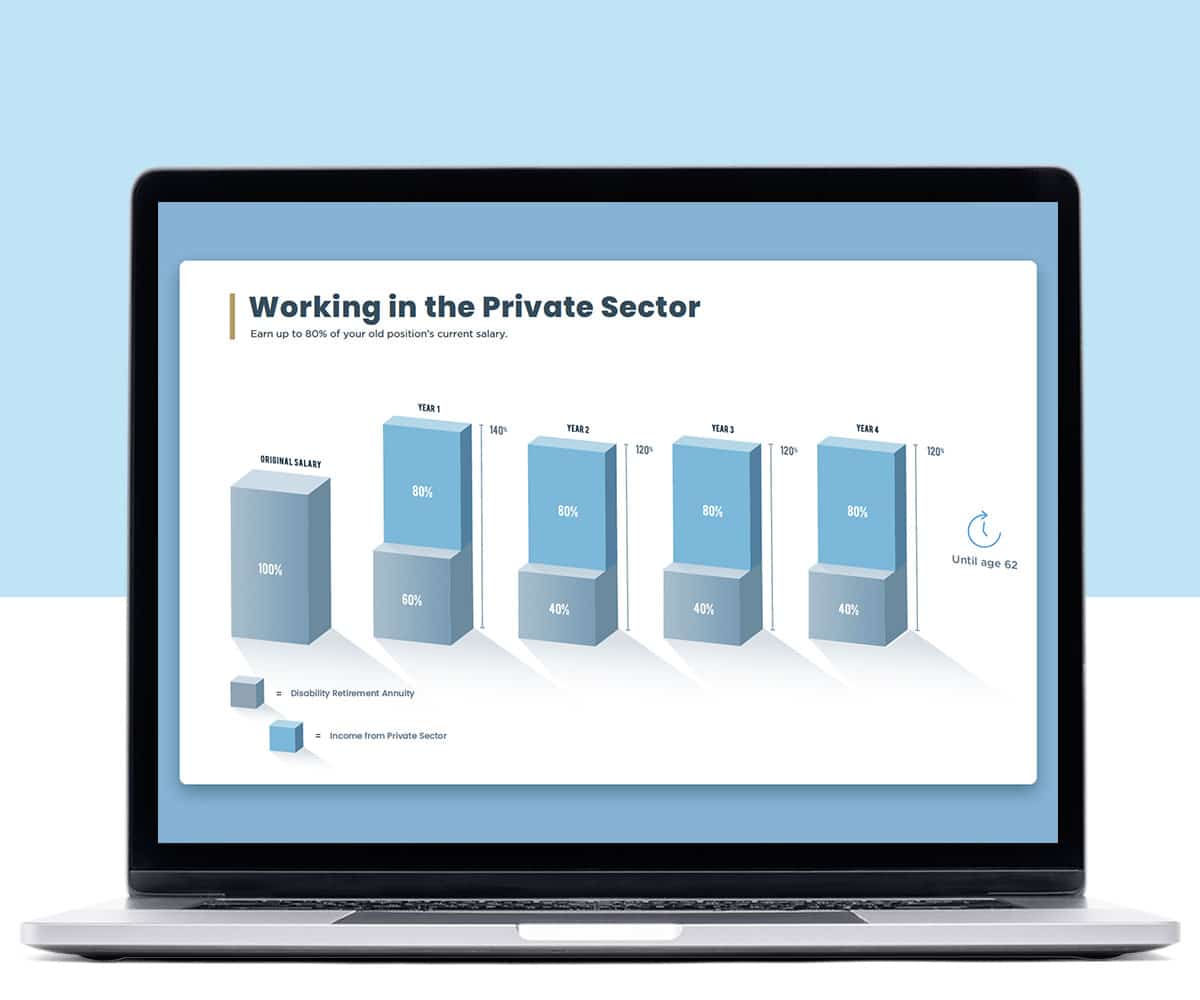The Harris Federal Law Firm works with federal employees across the U.S. and abroad to make sure they are being treated fairly according to the rules and regulations that govern Federal Disability Retirement and other benefits programs.
We have seen repeatedly how the benefits available to federal workers play an important role in the lives of those who can no longer do their jobs due to a medical condition or injury.
If you think you could qualify for federal benefits that you are not receiving, we urge you to contact us for a review of your federal employment record, medical status and the benefits that may be available to you.
Here are five reasons why we think you should investigate your opportunity to receive federal disability retirement benefits:
- You may need benefits for financial reasons.
If you can’t do your job because of your medical condition, you probably need benefits to pay your bills. This is especially true if you, like many Americans, lack adequate savings.
If you are a disabled civilian federal worker in either the Civil Service Retirement System (CSRS) or Federal Employees Retirement System (FERS) or a Postal Service employee, you qualify for a lifetime payment to make up a portion of your lost salary.
Regardless of which retirement system you belong to, your benefit would be equal to at least 40 percent of your salary (high-3 years) and could be as much as 80 percent if you are a CSRS retiree.
- You have earned these benefits.
If you have worked as a civilian federal employee for 18 months that are creditable under FERS, and an injury or illness has left or will leave you unable to provide “useful and efficient service” in your current position for 12 months or more, you may qualify for federal disability retirement benefits.
Keep in mind: The injury does not have to be caused by something that happened in your job. However, it does have to be a medically determinable condition that affects your ability to do your work.
You may have spent your entire career in federal service – possibly making less than you could have earned in the private sector. The advantage of receiving these benefits if you need them is a part of the deal the federal government made with you when you were hired. There is no reason to forego them if you qualify.
- You can welcome new opportunities.
Many federal employees do not know that you can earn additional income from the private sector while receiving federal disability retirement benefits. Yes, you did hear that correctly. Federal disability retirees can earn up to 80 percent of their previous salary in conjunction with their federal disability retirement payments.
This is very important because it gives hope to those who are looking to “move on” with their life outside of federal employment. We’ve seen many clients peruse a passion they dreamed about for years and take advantage of this unexpended opportunity to do so. Perhaps you could be a realtor, schoolteacher, social worker or even work in a law firm.
Of course this option may not work for everyone, but it can be a beacon of hope for many federal employees who are going though a dark time.
- You should be healthier.
Once you have retired, and your finances are settled, a great deal of stress should fall off your shoulders. This is important. Financial stress is bad for your health. As this publication states, it can lead to headaches, backaches, ulcers, increased blood pressure, depression, anxiety and more.
Additionally, “extended periods of stress can take their toll on physical, mental, and emotional health,” and a parent’s extended stress over finances will eventually hurt their children. Even the stress of your job can increase the rate of physical wear and tear that you suffer, according to the National Institute for Occupational Safety and Health (NIOSH).
“Ultimately, fatigue or damage results,” NIOSH states, “and the ability of the body to repair and defend itself can become seriously compromised. As a result, the risk of injury or disease escalates.”
Why go through that situation if you can collect retirement benefits instead?
- We can do the work for you.
We understand that, if you are seriously ill or badly injured, you are probably not ready to gather records, communicate with your doctors regarding correct and specific medial opinions, fill out complex forms and communicate with your agency’s HR office. Harris Federal can take care of those matters for you.
Under OPM rules, the responsibility for the work necessary to file for retirement benefits falls on you, the applicant. The team at Harris Federal can keep this work from overwhelming you at a time when you should be focusing on your health.
We know the ins and outs of the federal disability retirement system. We can ensure your paperwork is right. We can guide it through the system to make sure it is processed as efficiently as possible – and with as little pressure on you as possible.
We have successfully helped 8,000 happy federal employees all across the country and abroad. To find out how we can help you, too, simply call to schedule a free consultation today.



